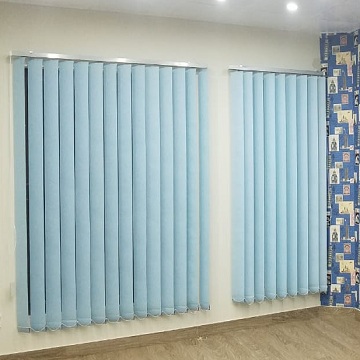Table of Contents
ToggleWhat is the benefit of Roman blinds?
Roman blinds are completely ideal for windows that are small. Little windows could be hidden with a couple of cumbersome draperies, yet not a Roman blind.
Introduction:
Roman blinds are a popular and versatile window treatment that can be used in almost any room. They come in a variety of styles, colors, and materials, and they offer excellent light control and privacy.
However, as with any home decor item, there may come a time when you need to replace your blinds. Maybe they have become outdated, or perhaps they have been damaged over time. Whatever the reason, there are several things you can do with your used Roman blinds.

Donate your used Roman blinds:
If your used blinds are still in good condition, consider donating them to a local charity or thrift store. Many organizations will accept window treatments as a donation and sell them to support their programs. This is a great way to give back to your community and ensure that your blinds are put to good use.
Repurpose your used Roman blinds:
If your blinds are no longer suitable for their original purpose, consider repurposing them. There are many creative ways to reuse blinds, and they can add a unique touch to your home decor.
For example, you can use them to cover a canvas or picture frame and create a one-of-a-kind piece of art. You can also cut them up and use them to make coasters or placemats. The possibilities are endless, and the end result will be a fun and functional item that you can enjoy for years to come.
Recycle your used Roman blinds:
If your blinds are damaged or beyond repair, consider recycling them. Many recycling centers will accept window treatments made of certain materials, such as aluminum or vinyl. Contact your local recycling center to find out what materials they accept and how to properly dispose of your blinds.
This is a great way to reduce waste and ensure that your blinds are disposed of in an environmentally-friendly way.
Sell your used Roman blinds:
If your blinds are still in good condition, you may be able to sell them. There are many online marketplaces where you can list your blinds for sale, such as eBay, Facebook Marketplace, or Craigslist. Be sure to take clear photos and provide accurate descriptions of your blinds, including the size and material.
You can also try selling them at a local consignment or second-hand store. This is a great way to make some extra money and ensure that your blinds are put to good use.
Give your used Roman blinds away:
If you have friends or family members who are in need of window treatments, consider giving them your used blinds. This is a great way to help someone out while also getting rid of something you no longer need. Be sure to measure your blinds carefully and provide accurate descriptions to ensure that they are a good fit for the recipient’s windows.

Conclusion:
There are many things you can do with your used blinds, whether they are in good condition or not. From donating and repurposing to recycling and selling, there are many options to choose from.
Whatever you decide to do, be sure to dispose of your blinds in an environmentally-friendly way and consider giving back to your community by donating or repurposing them. With a little creativity and resourcefulness, you can give your old blinds new life and enjoy the benefits of sustainable and eco-friendly home decor.
FAQS:
Why is it called Roman blinds?
Roman blinds were first used in the ancient Roman Empire. They were made from linen or hemp, which is why they are called Roman blinds today.
What material are Roman blinds made of?
Roman blinds are commonly made using cotton fabrics – whether they are 100% cotton or a polyester/cotton blend – due to their breathable qualities, cotton Roman Blinds will help keep a room cool.
What is the main purpose of blinds?
Blinds let you keep the sun out (and also stop internal light from escaping) which might mean the difference between you being able to sleep at night or not; or even the ability to see your TV screen for daytime viewing or not.



